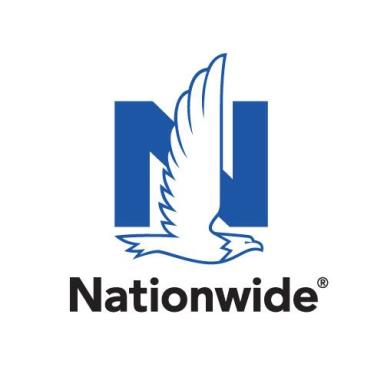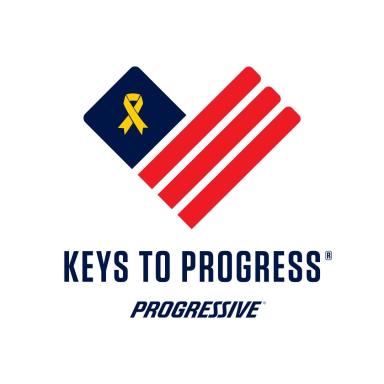How To Get Car Insurance

You’ve bought the car. Now, you need to get it insured. You can purchase car insurance by doing an online search, calling insurance companies directly, or visiting a brick-and-mortar location to speak with an insurance rep in person. Whether your car is new or used, buying auto insurance is one of the most important actions you need to take when you become a vehicle owner. It can seem tedious and overwhelming, but it doesn’t have to. Follow our step-by-step guidelines on how to get car insurance, outlined below. First, however, learn about the different kinds of car insurance policies available.
Types of Car Insurance
Before you start comparing insurance companies and prices, you’ll want to determine how much car insurance you need. Start by looking into your state’s insurance laws, as every state has different requirements. Here’s a breakdown of the different types of coverage:
Six Steps To Getting Your Car Insurance
Don’t get caught without car insurance. According to the most recent study conducted by the Insurance Research Council, approximately one in seven U.S. drivers (or 14%) are uninsured. Even the most careful drivers can find themselves in a car accident situation. Adverse weather conditions and acts of nature can affect anyone. When you become a car owner, there is simply no way to mitigate the risk of damage to your auto down to zero. Knowing the right steps to take before you purchase your car insurance policy can save you time and frustration. Be prepared by following these six guidelines:
Learn your state’s auto insurance requirements
Determine how much coverage you require
Decide how you intend to shop
Perform a company and cost comparison
Organize your driver and automobile information
Buy your policy and cancel any old policies
Learn your state’s auto insurance requirements
Every state has its own set of car insurance requirements. Before you decide what type of insurance to purchase, be sure to look into your state’s regulations, so you know how much coverage is the minimum you can purchase. Almost every state requires that motorists carry liability insurance for both bodily injury and property damage. Exceptions to this requirement are Florida, which only needs liability coverage for property damage, coupled with personal injury protection, and New Hampshire, which does not require motorists to purchase car insurance at all but does stipulate that they must provide proof of financial responsibility in the event of an accident for which they are at fault. The more you know about your state’s insurance regulations, the more prepared you’ll be to make an educated decision when determining your own needs.
Determine how much coverage you need
Consider the following:
What’s the minimum amount of insurance required by law in your state?
How often do you drive, and how far?
Do you work from home or commute?
Is your commute short or long?
How many motorists will be on your policy?
How experienced are the drivers on your policy?
How old is your car?
Do you or any of the drivers on your policy have any recent traffic infractions, such as speeding tickets or tickets from previous accidents?
Do you prefer to pay a higher premium but a lower deductible, or vice versa?
Everyone’s insurance needs and financial capabilities are different. All of these are questions you should ask yourself when thinking about what kind of coverage you intend to buy.
Decide how you intend to shop
When it comes to how you shop for insurance, you have several options.
You can buy directly from the auto insurance company
This can be done over the phone, in person, or online
It is a good option for people who like to avoid sales pressure situations
Online purchasing options make it relatively convenient and efficient
Good for people who already know exactly what kind of coverage they need/want
You need to be mindful that online quotes are estimates and may be subject to change
You can buy from a captive agent
A captive agent is an insurance agent who specifically represents only one insurance company
They can provide you with detailed and knowledgeable guidance about your policy options
They can help you manage multiple types of insurance policies
If you go this route, you can build a long-term relationship with someone who fully understands your needs
Enjoy the convenience and peace of mind of having a designated insurance contact
On the downside, they may be inclined to offer you policies with higher premiums, as they tend to work on commission
They cannot provide you with price comparisons for other companies
You can speak with an independent agent or broker
Different from captive agents, independent representatives are not tied to only one insurance company
They can give you cost comparisons from multiple insurance agencies
You are likely to get more honest feedback about your options from an independent agent or broker than you would from a captive agent
On the negative side, as with captive agents, independent agents, and brokers may come with higher premiums to cover their commissions or broker’s fees
Perform a company and cost comparison
Regardless of how you decide to buy your insurance, you can better prepare for your purchase by first comparing quotes online. Start with comparing quotes from at least three different auto insurance providers to ensure you are getting the best rates available to you. When doing your cost comparison, be sure you are looking at policies that provide the same amount of coverage. Before you make your decision, you may also want to check out some reviews of the companies you are considering. The National Association of Insurance Commissioners is a great place to start if you want to check out whether or not the companies you are considering purchasing from have a high volume of consumer complaints.
Organize your driver and automobile information
Once you have done all of your research regarding your state’s insurance regulations, how much coverage you require, how you intend to shop, and what company you might like to purchase from, you should prepare for your purchase by organizing all of the following information:
Make and model of the car
Vehicle identification number
Current odometer reading on the car
Anticipated mileage driven (daily or annual)
Intended use of vehicle
Car registration information
Name, address, and birthday for every motorist on the policy
Up-to-date driver’s license info of everyone on the policy
Driver history regarding traffic tickets, accidents, etc.
Current insurance information (insurer and policy coverage)
Buy your policy and cancel any old policies
You’ve done all of your preparation. It’s time to make your purchase. Whether you are doing everything online, over the phone, or in person, you should have the option to pay by the month, or pay for 6 months or pay for a year all at once. If you choose to pay for everything at once, you may very well be offered a discount, as opposed to paying month-by-month. If you are in the process of buying a new car, you will probably be required to have your insurance set up before you drive it away from the dealership. Lastly, once you are positive that your new insurance is good to go, be sure to cancel your former insurance policy. If you have paid for any unused premium from your former policy, you may also expect to receive a reimbursement check from that company.
How Often Should I Shop Around for Better Car Insurance Rates?
The general recommendation is that motorists shop for a new quote on their auto insurance once a year or whenever their policy is due for renewal. Reevaluating your options every year may help with things like finding lower rates or better coverage. Here are some other factors that may inspire you to shop around for new insurance:
Change of address
Change in jobs (reduced commute)
Change in financial situation (need to adjust deductible or premium)
New car
Adding or eliminating someone from the policy
Lapsed driving infractions (i.e., several years have passed since the offense, and you are no longer considered “high risk”)
When shopping for new insurance, it’s a good idea to compare pricing and coverage options from multiple car insurance providers. Also, don’t be afraid to ask if there are any discounts available that could apply to you.
Find the Best Car Insurance Agency for Your Coverage
Need help finding the best insurance policy to suit your needs but aren’t sure where to begin? Check out our directory of local, experienced, and well-qualified car insurance agencies. They are ready to get you set up today and will give you the peace of mind that comes from knowing that a professional has your back. Happy driving!
Expertise.com StaffAuthor
Step into the world of Expertise.com, your go-to hub for credible insights. We don't take accuracy lightly around here. Our squad of expert reviewers, each a maestro in their field, has given the green light to every single article you'll find. From rigorous fact-checking to meticulous evaluations of service providers, we've got it all covered. So feel free to dive in and explore. The information you'll uncover has been stamped with the seal of approval by our top-notch experts.




